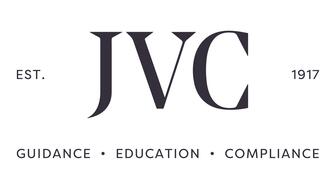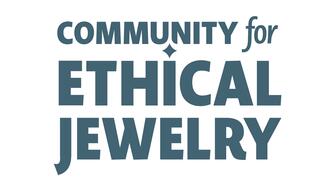11 and ½ Thoughts on Leadership
From prioritizing “big rocks” to practicing transparency, Peter Smith explores what it takes to be an effective leader.

The power Barker writes about in his fascinating book is that which comes with leadership. That very thing about which Abraham Lincoln opined, “Nearly all men can stand adversity, if you want to test a man's character, give him power.”
While we are hardly unique in this regard, it seems to me that our industry is rather prone to celebrate people in high-profile positions as though titles alone beget leadership excellence.
The reality, of course, is that titles no more serve as a proxy for leadership than the lack thereof indicates the absence of said qualities.
In thinking about important attributes of leaders, I’ve come up with the following partial list.
I’m sure you, as an observer of leaders good and bad, or as a practitioner, hopefully of the former variety, could add a few more yourself.
1. Articulate Your Vision
One of the most damaging assumptions in business is that everyone knows what you are trying to accomplish.
Be crystal clear in establishing what your company mission is and know that ambiguity and uncertainty kill ambition.
Inc. magazine asked executives at 600 companies to guess the number of their employees who could name the company’s top priorities.
The executives predicted 64 percent would be able to do so.
When Inc. asked the employees to identify the top priorities, only two percent could name them.
Park the euphemisms and hyperbole and speak in plain language so that everyone knows what you’re trying to achieve.
2. Focus on Controllables
You can’t control the weather, the political climate, or the impending plague of locusts.
You can, however, control the most important aspects of YOUR business.
You can control the quality of your people, the merits of your compensation plan, the relevance of your product, the clarity of your messaging, the sensory experience in your store (lights, sound, scent, etc.), your commitment to CRM, and myriad other tangible aspects of your business.
Manage the controllables and leave the excuse peddlers to battle the locusts.
3. Attack the Big Rocks
There are many aspects of your business that cry out for attention. Resist the urge to lose yourself in the minutia, as though every task and challenge delivers equal returns.
Devote your time, energy, and most important resources to the things that make the most difference in moving the business forward and delegate the time-consuming things that won’t materially impact results – but which still need to be done - to members of your team.
4. Spend More Time With Your Best People
There’s something counterintuitive in suggesting you spend more time with your best people, those who by any reasonable measure already know what they’re doing.
Small improvements from your top producers will have the biggest impact on your business and, even though they may not always act like it, your best people need your attention and acknowledgement too.
As Abraham Maslow wrote, "Recognition is a need we all crave, and there are no exceptions."
5. Speak Last in Meetings
The aptly-named author and speaker, Julian Treasure, described meetings as places where minutes are taken, and hours are lost.
Somewhere between nonsense meetings (a platform for weak leaders to hear themselves talk) and no meetings at all (because you believe your team are mind-readers) exists a place for learning and a meaningful exchange of ideas.
The leader should always speak last, to avoid groupthink – where everyone aligns with the boss and suppresses important and often necessary debate.
Good leaders also ensure that all voices are heard, not just the loudest ones.
6. Take Risks and Practice Psychological Safety
No real growth can come without some risk-taking, and no risks can be taken in environments that are not psychologically safe.
If you want your people to stretch beyond their comfort zones, encourage them to challenge the status quo.
Fear-based cultures are the shortest route to stagnation, underperformance, and talent drain.
It may be true that there is a high instance of sociopathy in leadership – and that can occasionally produce short-term gains by (brute) force of personality–, but without empathy, there can be no long-term and sustainable growth and development of your talent and business.
7. Be Transparent
Good leaders share good news and bad. They’re never less than fully transparent about the challenges ahead, and they respect their team enough to be honest and truthful about current and future challenges.
When things don’t go well, empty platitudes and meaningless euphemisms ring hollow and are often disrespectful.
Share the credit when things are good, and tell the truth when things are not going well.
You’ll be amazed at how a modicum of humility and honesty can galvanize a team.
8. Make Hard Decisions Respectfully
There is never an excuse for demeaning or belittling an employee, internally or externally, when he or she is being released from their employment.
When I hear about managers making veiled inferences about someone’s underperformance after they have been released, it makes me question the ethics and decency of the manager doing the bad-mouthing.
Treat all people with dignity and respect and recognize that not everyone will work in every environment.
Likewise, if someone is just not working out in your business, and you have done all you can to help them, make the hard decision to respectfully part ways. You owe that to all parties and everyone (including the parting employee, eventually) will thank you for it.
9. Leverage Data and Automation
Running your business on gut-instinct and the strength of your experience and convictions alone is a bad idea.
Using data to understand your business is not mutually exclusive to using your finely-honed instincts and expertise.
Whether that is knowing your inventory performance, your price-points activity and gaps, your head-count conversion, your sales and profitability by salesperson, etc., real-time data is critical to maximizing performance and identifying (often contrary to instincts) areas of concern.
Related to gathering data is the concept of automation. Anything that can be automated, that you don’t have to touch, is one more opportunity for you to work on the business instead of being a slave to it.
10. Develop a Hiring Process
When it comes to Big Rocks, building a team must be top of the list and yet it is very often relegated to the status of a perpetually annoying chore that never seems to get easier.
Hiring the right people is the best way to create energy and efficiency in a business and doesn’t have to be the complicated morass that we’ve made of it.
Get help if you need it, but whatever you do, prioritize creating a hiring process and structure.
11. Prize Performance
You can prize harmony, or you can prize performance.
The former frequently masks underperformance, but the latter can be accomplished in a culture of mutual respect that is never less than clear that results will always matter.
You can and should deliver an exceptional experience to your customers. There is no conflict between doing that and selling them beautiful jewelry that they can treasure for decades.
11.5 Hire Smarter People Than You
And the half point is if you’re worried about your direct reports being smarter than you, leadership is probably not your thing!
Happy Retailing!
The Latest

JVC also announced the election of five new board members.

The brooch, our Piece of the Week, shows the chromatic spectrum through a holographic coating on rock crystal.

Raised in an orphanage, Bailey was 18 when she met her husband, Clyde. They opened their North Carolina jewelry store in 1948.

Launched in 2023, the program will help the passing of knowledge between generations and alleviate the shortage of bench jewelers.

Material Good is celebrating its 10th anniversary as it opens its new store in the Back Bay neighborhood of Boston.


The show will be held March 26-30 at the Miami Beach Convention Center.

The estate of the model, philanthropist, and ex-wife of Johnny Carson has signed statement jewels up for sale at John Moran Auctioneers.

Criminals are using cell jammers to disable alarms, but new technology like JamAlert™ can stop them.

Are arm bands poised to make a comeback? Has red-carpet jewelry become boring? Find out on the second episode of the “My Next Question” podcast.

It will lead distribution in North America for Graziella Braccialini's new gold pieces, which it said are 50 percent lighter.

The organization is seeking a new executive director to lead it into its next phase of strategic growth and industry influence.

The nonprofit will present a live, two-hour introductory course on building confidence when selling colored gemstones.

Western wear continues to trend in the Year of the Fire Horse and along with it, horse and horseshoe motifs in jewelry.
![A peridot [left] and sapphires from Tanzania from Anza Gems, a wholesaler that partners with artisanal mining communities in East Africa Anza gems](https://uploads.nationaljeweler.com/uploads/cdd3962e9427ff45f69b31e06baf830d.jpg)
Although the market is robust, tariffs and precious metal prices are impacting the industry, Stuart Robertson and Brecken Branstrator said.

Rossman, who advised GIA for more than 50 years, is remembered for his passion and dedication to the field of gemology.

Guthrie, the mother of “Today” show host Savannah Guthrie, was abducted just as the Tucson gem shows were starting.

Butterfield Jewelers in Albuquerque, New Mexico, is preparing to close as members of the Butterfield family head into retirement.

Paul Morelli’s “Rosebud” necklace, our Piece of the Week, uses 18-karat rose, green, and white gold to turn the symbol of love into jewelry.

The nonprofit has welcomed four new grantees for 2026.

Parent company Saks Global is also closing nearly all Saks Off 5th locations, a Neiman Marcus store, and 14 personal styling suites.

It is believed the 24-karat heart-shaped enameled pendant was made for an event marking the betrothal of Princess Mary in 1518.

The AGTA Spectrum and Cutting Edge “Buyer’s Choice” award winners were announced at the Spectrum Awards Gala last week.

The “Kering Generation Award x Jewelry” returns for its second year with “Second Chance, First Choice” as its theme.

Sourced by For Future Reference Vintage, the yellow gold ring has a round center stone surrounded by step-cut sapphires.

The clothing and accessories chain announced last month it would be closing all of its stores.

The “Zales x Sweethearts” collection features three mystery heart charms engraved with classic sayings seen on the Valentine’s Day candies.

The event will include panel discussions, hands-on demonstrations of new digital manufacturing tools, and a jewelry design contest.





























